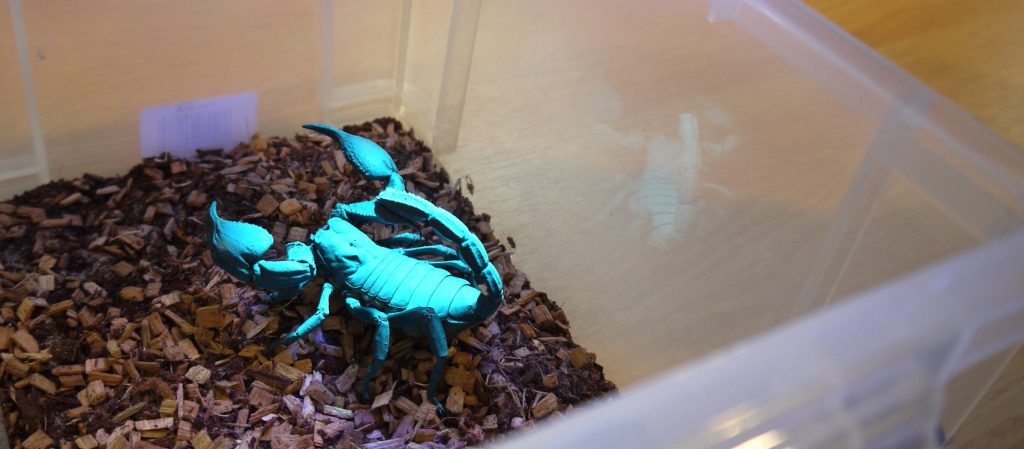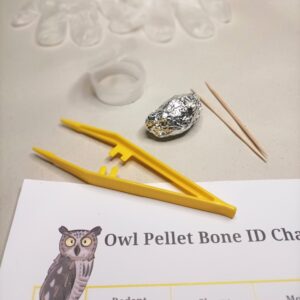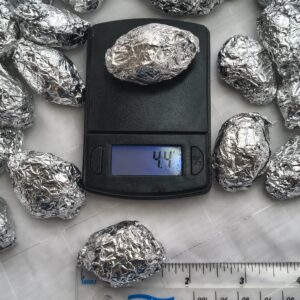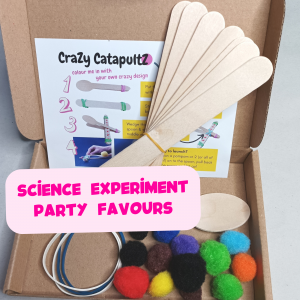Did you know that scorpions glow?!
Last week at the Science & Nature Easter Holiday club, we met Spike – the scorpion. Spike’s owner, Ranger Russ, taught us loads about all his animals that he brought in for us to see, such as Millie the Millipede, Chomper the Tarantula, and Clive the 12ft python! However I was particularly intrigued by Spike’s special ability to glow under a UV torch, so I looked into this phenomenon a bit more and here’s what I found out…..
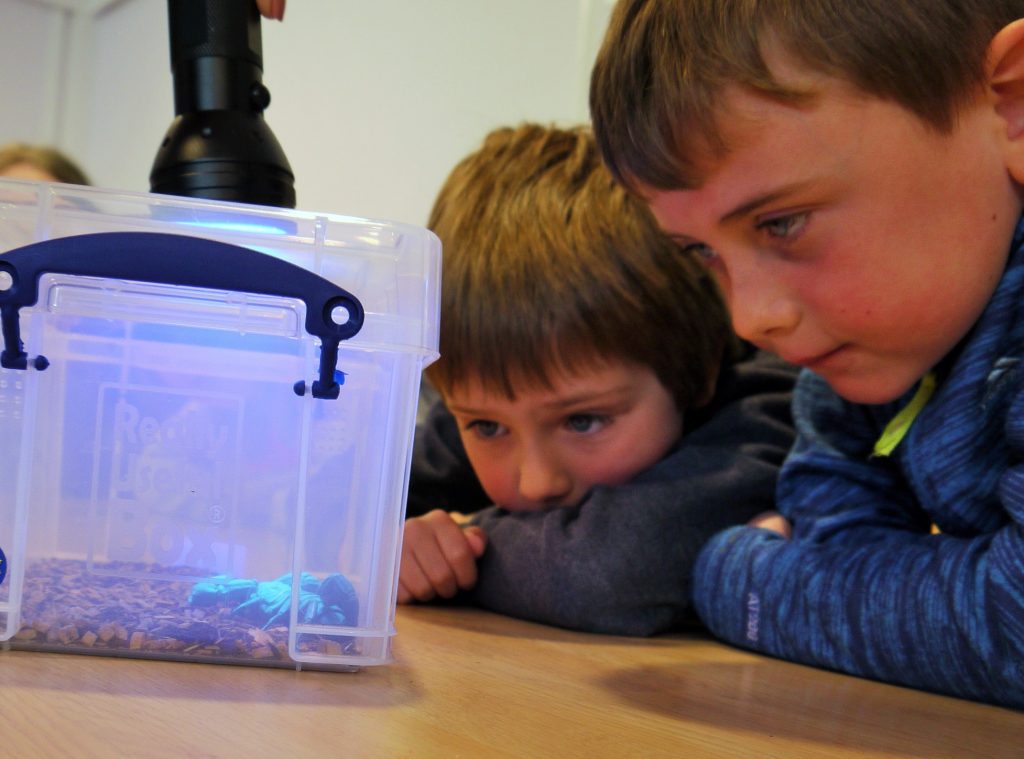
Spike the Scorpion looked black under normal light, but in fact he was a very dark green. When we shone a UV torch on him, he glowed an amazing bright blue-green colour. It looked stunning. Of course scorpions don’t just glow under UV torches, they also fluoresce under natural moonlight, and that makes much more sense!
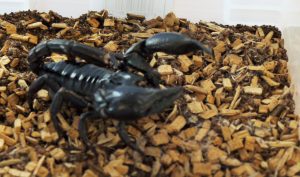
However, it is not known for certain why scorpions glow. One theory is that it acts like a sunscreen, protecting them from the sunlight, another says it may help them see in the dark by creating a kind of night-light. Another reason may be to confuse or frighten prey – which seems odd as they are nocturnal, so why glow so brightly? Other research suggests they can detect moonlight and thus know when to come out to prey.
……or, perhaps it has no function at all!
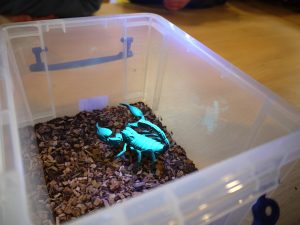
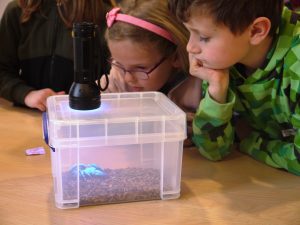
The substance that glows is found in the hardened exoskeleton. When a scorpion sheds its skin, it temporarily loses its ability to fluoresce until the new cuticle hardens to form an exoskeleton. This suggests the fluorescing substance could be just be a chemical produced in the hardening process, and is a random act and so has no function.
So, there are several different ideas as to why scorpions fluoresce, which reason do you think is most plausible?
By the way, did you know that the scorpion fluoresces for some time after its died? Creepy.
Fun Facts
~Scorpions, with their distinctive sting, are well recognised arachnids found all over the world (except Antarctica!). Not naturally found in the UK, but they have been introduced accidentally and now live here!
~Some species reproduce by parthenogenesis – where an embryo develops from an unfertilized egg (basically they can produce babies without needing to mate!)
~The scorpion is nocturnal. It hides during the day under rocks and in holes then emerges at night to feed.
~Scorpions were around when dinosaurs roamed the earth!
Would you like to know ore about out Science Workshops, Parties & Events? Then browse our webpage here or contact us here.


